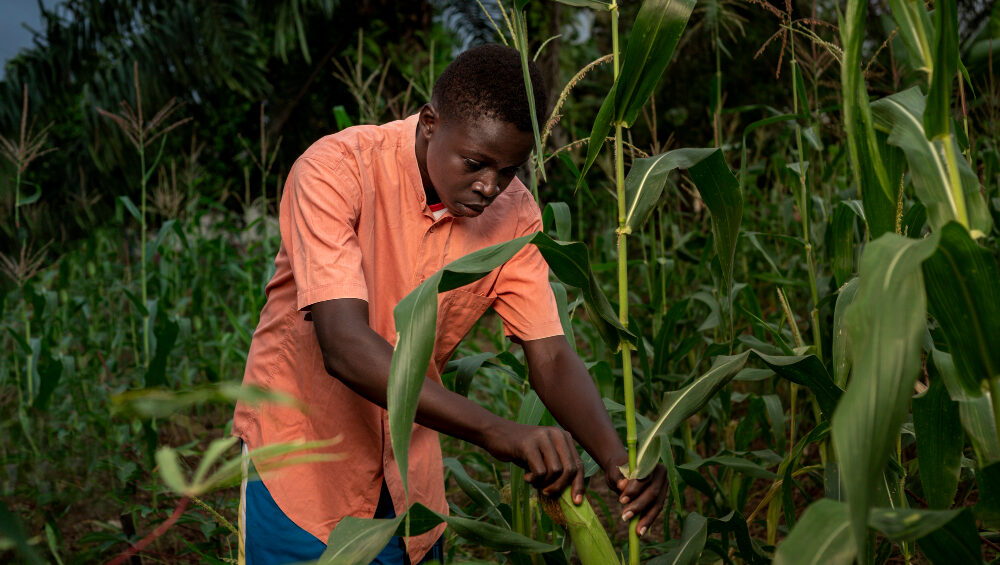In the realm of agriculture and food production, few regions possess the rich cultural heritage and traditional farming techniques as the Yoruba people of West Africa. Nestled primarily in Nigeria, Benin, and Togo, the Yoruba have long been revered for their sustainable farming practices that not only ensure food security for their communities but also contribute to global agricultural diversity. In this article, we delve into the intricate world of Yoruba farming, exploring its sustainable approach to agriculture that can serve as a blueprint for ensuring food security in a rapidly changing world.
The Yoruba: Guardians of Sustainable Farming
A Rich Agricultural Legacy
The Yoruba people have cultivated the lush landscapes of West Africa for centuries. Their agricultural practices have been handed down through generations, embodying a deep respect for the land and its resources. This reverence for nature is the cornerstone of their sustainable approach to farming.
Biodiversity as a Pillar
Yoruba farming emphasizes biodiversity as a crucial element of sustainable agriculture. Instead of relying on monoculture, which is prone to pest infestations and soil depletion, Yoruba farmers embrace polyculture. They intercrop various crops, ensuring a balance that enhances soil fertility and reduces the need for chemical fertilizers and pesticides. This natural approach not only safeguards the environment but also provides a resilient and varied food supply.
Organic Farming Practices
One of the hallmarks of Yoruba farming is its commitment to organic practices. Yoruba farmers steer clear of synthetic chemicals, opting for traditional methods such as composting, crop rotation, and natural pest control. This not only results in healthier crops but also safeguards the delicate ecosystem.
Food Security: A Global Concern
The Challenge of Feeding the World
In a world grappling with a growing population and environmental challenges, ensuring food security has become an urgent priority. The Yoruba approach to sustainable farming offers valuable insights into how we can meet this challenge while preserving our planet.
Resilience in the Face of Climate Change
Climate change poses a significant threat to global agriculture. Extreme weather events, shifting growing seasons, and unpredictable rainfall patterns can wreak havoc on crops. Yoruba farmers, with their diverse planting strategies, are better equipped to weather these challenges. Their crops are resilient, adapting to changing conditions and providing a steady source of sustenance.
Lessons for Modern Agriculture
Embracing Diversity
One of the key takeaways from Yoruba farming is the importance of diversity in our agricultural systems. Monoculture, which dominates modern farming, is susceptible to catastrophic failures. By diversifying our crops, we can reduce the risk of widespread crop failures and ensure a stable food supply.
Sustainable Practices
Yoruba farming demonstrates that it is possible to cultivate the land without harming it. By adopting organic and sustainable farming practices, we can mitigate the damage caused by synthetic chemicals and excessive land use.
Community Engagement
Yoruba farming is deeply rooted in community life. Farmers often work together, sharing knowledge and resources. This sense of communal responsibility ensures that no one goes hungry, even in times of scarcity. It is a model of cooperation that modern societies can learn from.
Conclusion
In the quest for food security, the Yoruba people offer a shining example of how sustainable farming practices can not only feed a community but also protect the environment. Their commitment to biodiversity, organic farming, and community engagement are lessons that we must heed as we face the challenges of the 21st century.
As the global population continues to rise and climate change threatens our food systems, it is imperative that we look to traditional wisdom, such as that of the Yoruba, for guidance. By embracing these principles and adapting them to modern agriculture, we can work towards a future where food security is no longer a distant goal but a tangible reality.





